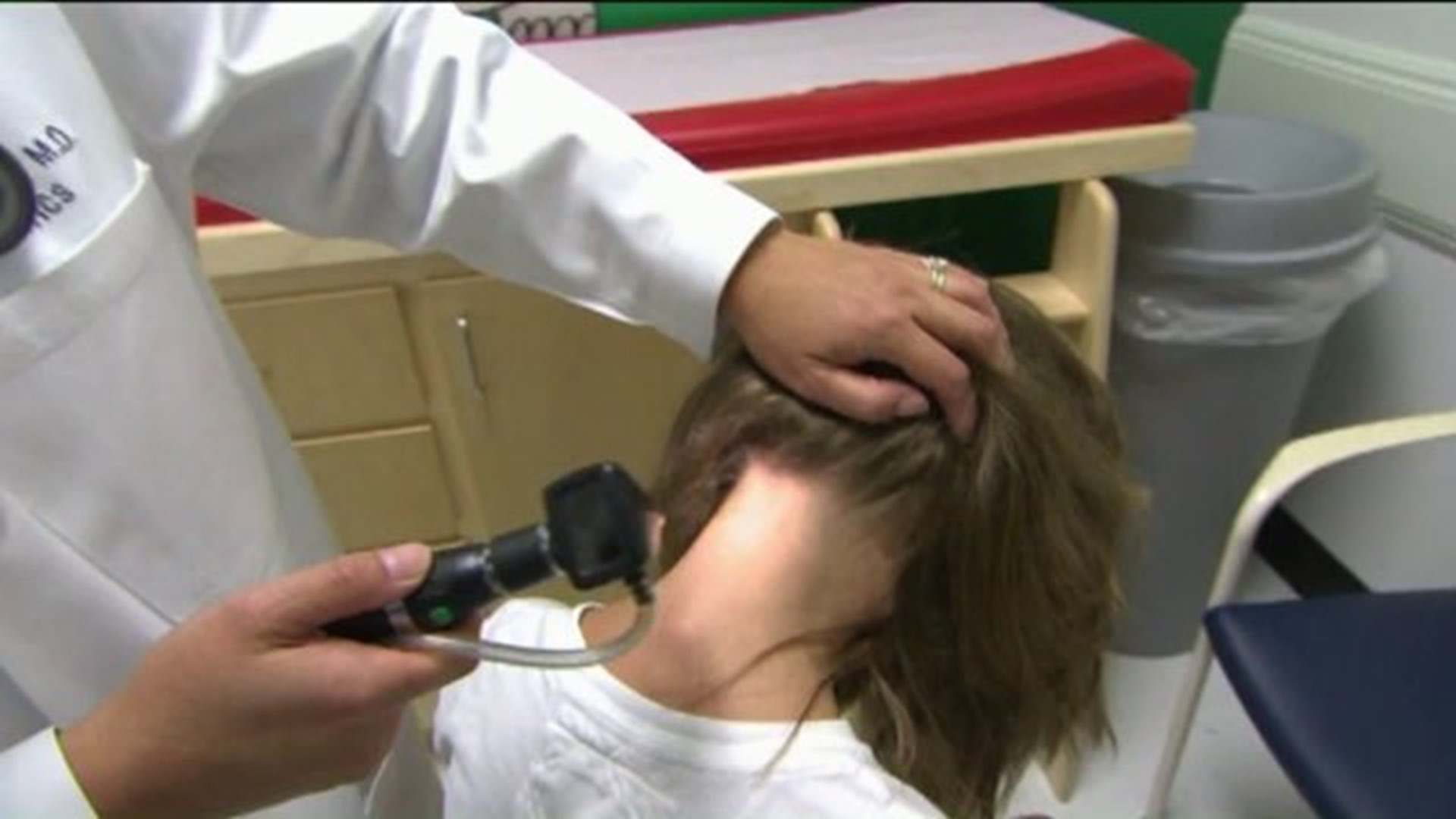SCRANTON -- The mere mention of head lice might make you itchy. Certainly, it's not a fun thing to go through, but experts say it's really common, especially this time of year when kids are back together in close contact.
The pre-kindergarten crew at Little People Day Care in Scranton are balls of energy. They love to have fun and director Beckie Schaffer says it's hard to keep them far apart.
"They lean over each other, their heads are always touching, they just don't understand personal space yet. They don't keep apart, they stay close to each other, on top of each other," said Schaffer.
Schaffer knows those conditions are perfect for spreading head lice, a common type of parasitic insect that lives close to the human scalp, spread through head-to-head contact.
She says they do as much prevention as they can. Teaching kids not to share hats or headbands is one example. Taking precaution during nap time is another.
"We try to make sure their heads are not touching each other. They sleep head to toe so their heads aren't even close. We do what we can but, of course, it's going to happen."
If it does happen, don't panic, says Dr. Kathleen Noss, a pediatrician with Geisinger's Partners in Pediatrics, located in Pittston.
First step: give a close check to your child's scalp.
"It's hard to find these lice because they like the dark and avoid the light so when you look in the hair you have to look close to the scalp and if you see one it'll tend to dart into the hair," Dr. Noss explained.
Also look for nits, or the eggs that lice lay. They'll be tiny and round and will stick to the hair shaft close to the scalp unlike fuzz or dandruff that will easily shake out.
If you see something, the next step is to give your pediatrician a call.
Dr. Noss says he or she will likely first suggest an over-the-counter treatment, which in most cases, work very well.
"You don't have to drive yourself crazy to deep clean your house. Generally, that's a very small risk of transmission," said Dr. Noss.
Both Dr. Noss and Beckie Schaffer point out lice is common. It knows no socio-economic boundaries and has nothing to do with a child's or a family's hygiene.
"It's just where your child has been, and who has your child been in contact with the last couple of days," said Schaffer.
Although Dr. Noss says you don't have to bomb your house with chemicals to get rid of lice, it is recommended you wash your child's clothing and pillowcases in hot water and run them through a hot dryer.
Also, take the child's stuffed animals and dolls and place them in a sealed bag for a week or two to kill off whatever bugs might be on them.
Your child's doctor will be able to give you tips.

